|
What you believe (mindset) will shape what you do (habits). If you have a mindset that what you are doing now doesn’t matter, and by not caring or being engaged you develop lackadaisical habits in your school working ethics, these will be hard to break when you enter the workforce. Poor perspectives lead to lazy habits and these elements combine to create mediocre working habits. You don’t have to be a genius, a nerd, or a brown noser to be successful in school or at work. But, your attitude and level of effort now will carry into the workplace and likely into your relationships. For most of us, how we do one thing is also how we approach most things. If you half-ass at school, you likely do the same in sports, work, relationships, and anything else you are involved in. The Habits for AchievementYou probably think this isn’t true. But try me. See if trying a little harder at school doesn’t translate to trying a little harder in sports, elevating your effort at work, and even being more engaged in your close relationships. Pursuing new opportunities requires you to:
You cannot achieve new things without gaining new knowledge, improving your skills, and elevating your abilities. If you are wasting all the free education and opportunities being presented to you now, you will develop a blindness and deafness for recognizing them in the future. Everything you can learn and do, school, sports, volunteering, mentorship, etc. is free or low cost now. If you aren’t taking advantage of them you are being foolish. Be more present and appreciate what other people are saying to you, doing for you, and investing in you.
0 Comments
If you went way back in time, people groups were primarily agrarian. They lived off of the land. The effort put into working the soil, growing crops, and taking care of animals was directly tied to your ability to survive. Think of all the things we take for granted today, those were not around:
If you are hungry, you go to the grocery store or a restaurant. Those are fairly new elements of society. In prior generations, you wouldn’t buy bread, you harvested grain and made your own. You would top that with butter that you churned yourself and jam from wild berries. As technology advanced and societies evolved, work is more associated with making money to buy food rather than being directly involved in raising food. If you were a farmer raising you own food, you worked as long as you needed to in order to accomplish this task. If you didn’t work, you didn’t eat. A Brief History of WorkThe Industrial Revolution brought significant changes and factory work became prominent. People working in factories around 1867 were pulling 12 to 14-hour shifts, often six days a week; or 72-84 hours a week. That same year, Illinois was one of the first states to pass a law calling for a standardized 8-hour work week. The first occurrence of this becoming the norm was for government workers in 1869. It was until 1926, when the Ford Motor Company established a five-day, 40-hour workweek for its workers. Owner Henry Ford declared, “It is high time to rid ourselves of the notion that leisure for workmen is either lost time or a class privilege.” In 1938, congress finally passed the Fair Labor Standards Act, making the 8-hour work day and 40-hour work week the law of the land. Employers are allowed to ask you to work more than 40 hours and you may find some advantages in doing so. If you work more than 8 hours, in most jurisdictions, you are working overtime which is usually 1.5 times what your regular rate is. For example, if your hourly rate were $20 per hour, if you worked 45 hours in a week you would have 5 hours of overtime that would be paid at $30 per hour.
Putting In Extra Time at WorkWhen I first started working for a local restoration company in Ventura, California, I was on the mold removal team. If you’ve ever seen green or black stuff growing on a wall in your house, my team would be the ones that suited up, set a containment area, and removed the bad stuff. Our workday was 730am to 330pm, I was going to night school and had a daughter on the way. I noticed some of my team members in another division would get after-hours calls to respond to water damage in local homes and businesses. When I found out they were getting paid a bonus to go plus their overtime I asked to be put on that list immediately. Life is about opportunity, not convenience. If I was willing to be on-call for one week every 6 weeks, I often could make close to two weeks (or more) pay. This was money that I was able to use to pay cash for my associate's degree in criminal justice and tackle the debt from having a baby. Another cool thing you will learn, even if you have health insurance, there are still things you have to pay for when you have a medical procedure or create a human. Finding the Right Work TeamFinding a quality team to work with makes the reality of work more enjoyable. Four questions to help you determine if you're on the right team:
Money is important, but like many things in life it is a tool. The more you learn about how the tool of money works and how to apply it to your situation, the better you are able to use it to build the life that you want. A New Book for Young WorkersThis content was adapted from the new book from The DYOJO and Jon Isaacson titled, Challenge Accepted: An Open Letter To Young People Entering The Workforce. Watch the video to learn more about Challenge Accepted. 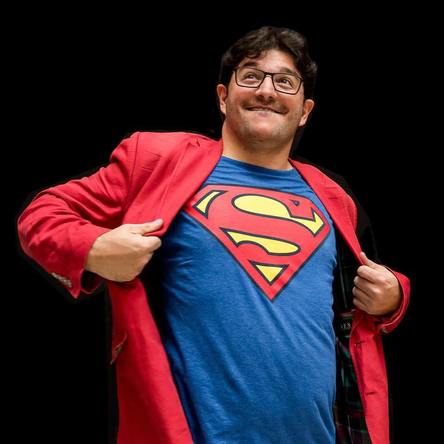 Interview with Tony Canas, co-author of Insuring Tomorrow Interview with Tony Canas, co-author of Insuring Tomorrow We love reading the stories of the successful once their journey has reached a point that they can drop bombs of wisdom on us about how they reached a level that we can admire. But what does innovation look like at the ground level, while it is still happening? What does it look like when you have an idea, you connect with a few people who get it, you begin to collaborate and build towards conquering your dreams? Tony Canas and co-author Carly Burnham (read our interview with Carly HERE) have found a piece of the puzzle that they are skilled and passionate about, they have collaborated to create InsNerds and co-authored a book, Insuring Tommorrow, to share their insights and story. To interact with Tony is to engage with an aspect of innovation that is gaining momentum through hard work, creativity and collaboration within an industry (like all industries) that is in need of innovation. Tony is digging into a subject that many are reticent to touch, the recruitment, development and retention of Millennials. In doing so, Mr. Canas has become a known blogger, author and speaker on the topic with his session "Recruiting and Retaining Millennials" being delivered at the CPCU Society Leadership Conference and Annual Meetings for 2014. Our thanks to Tony Canas for taking the time to share with us. (Jon Isaacson / IZ Ventures): When kids are asked in high school what they dream of becoming, the insurance industry is not one of those top 10 career choices, what brought you into this field? Tony Canas: Like almost everybody else I fell into insurance by accident. It was 2009 and I was living in Des Moines, Iowa, one of the top insurance cities in the US, and got downsized from my job as a fleet manager with a transportation company when the economy crashed. I started applying to a bunch of jobs and it just so happened I landed at the Farm Bureau Claims Call Center and immediately fell in love with the industry. What aspects of insurance are you currently engaged in, what does your day-to-day look like? In my day job I’m a middle market underwriter for a major national carrier and I manage the state of Mississippi. We have a lot of verticals (energy, public entity, construction, healthcare, etc) so I end up underwriting a lot of manufacturing, retail chains, wholesales, restaurant chains and hotel chains. You are building quite a presence through blogging at InsNerds.com, having written Insuring Tomorrow and with your speaking engagements, what are your goals with these entrepreneurial endeavors? I spend a lot of my free time growing and promoting InsNerds, our two podcasts and marketing our book Insuring Tomorrow. I also have keep evenings a week devoted to “micro-mentoring” other insurance professionals. I help them figure out where they want to go and how to get there and see if I can open some doors out of my 10,000+ LinkedIn connections. I’ve been doing it for a few months and some of my mentees have already scored better jobs which is incredibly rewarding! Anyone can grab some time on my calendar at ChatWithTony.com, although at times the wait can be a couple of weeks. On the writing side I work on bringing in new authors to InsNerds and writing some of my own articles (mostly about career growth) and we’d like to write a second book. On the speaking side I speak at insurance conferences about Engaging Millennials in Insurance as often as I can. The speaking invites have really picked up since the book came out and I love it! I've talked to several people that have ideas or some level of desire to write a book, for you what was the catalyst that brought you to writing Insuring Tomorrow? I waited five years for somebody to dedicate a book to the important topic of how to engage Millennials in our industry, and nobody did. Finally one day my girlfriend came home and told me “It’s time to write the book”. I called Carly (my co-author) and said “it’s time to write the book”. Then we just did it. I’m not saying it was easy, but after years of being passionate about the topic and collecting reference material actually getting it done wasn’t too bad. We wrote it in about 90 days and sales have been better than expected and the reviews very positive. In that process of formulating your thoughts into a book what was easier than you expected and what was harder than you expected in that process? It was both… What I mean is that while it was hard to sit down and write a table of contents to plan the different chapters, once that was done it was easy to write the draft for most chapters. The tough part was having to cut some of the chapters we originally planned for because we couldn’t find enough data and outside resources to really back them up. We wanted the book to leave the reader with a pretty airtight case, not just our opinion, but rather ideas backed by tons of outside research. Overall it took a LOT of time, and we stayed up late very often during the process, but it was mostly enjoyable and incredibly worth it. What have been some of the positive responses to your book? The topic of Millennials is rather charged, has there been much opposition to your publication? While there is absolutely a lot of “millennial fatigue”, the response has been almost completely positive. I think most people in the industry recognize that while we have talked a lot about the topic, we really haven’t solved it and we MUST solve it. Some of my favorite reviews said, “It is truly outstanding.” “Every insurance CEO should read this.” and “Essential reading for insurance executives.” One early reviewer called it, “The best book on understanding culture since Malcolm Gladwell’s Outliers.” The book is available at InsuringTomorrowBook.com The subject matter that you are speaking to centers around the topic of Millennials in the workforce, as such what is one key piece of advice that first you would give to leaders working with millennials and then to millennials who are either entering the workforce or seeking to better themselves? It’s hard to digest five years of research into a 250 page book, let alone a one hour talk and even harder into a couple of sentences, but I’d say the best way to understand Millennials is think of them as a different culture. Not better or worse, just different. And try to understand them in that context. Also, look at the numbers and realize that this will be a MASSIVE change for our industry. The business world in general has been dominated by Baby Boomers for decades, there were 25% fewer Gen Xers so they will always remain a minority, as the Boomers retire business will have to reinvent itself to survive in an era where Millennials will be the bulk of the workforce for at least a couple of decades. What is next for Tony? Now that’s a hard question! My plans have changed a lot over the last few years and I’m sure they will continue changing. I do know that I’m staying in the insurance industry for the rest of my career and will continue running InsNerds. Chances are many other projects that I haven’t even imagined yet will emerge from the InsNerds umbrella. I will continue being a positive voice of change for our industry and will continue my efforts to help us recruit and retain a new workforce. Tony Canas regularly writes for InsNerds.com, he is on LinkedIn and tweets as @TonyCanas4. Insuring Tomorrow has many applications outside of the insurance industry and is available for $20, you can find our review of the publication HERE. 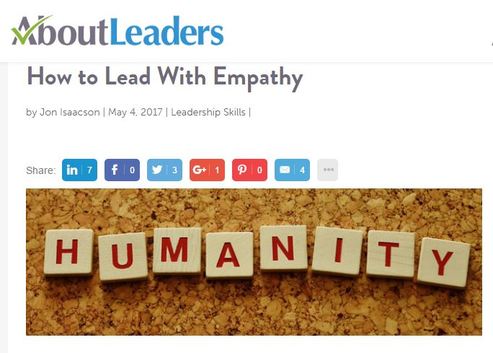 Article on leadership published with About Leaders Article on leadership published with About Leaders As a society, we talk a lot about leadership. This concept has become it's own industry with books, lectures, podcasts, seminars and trinkets. Yet, in all of the various words expended on business, entrepreneurship, and leadership, there are few that discuss the role of empathy as a key to the development of emotional intelligence. If you are in a position of leadership and have a desire to improve your employee engagement as well as team development, there is great value in continuing to grow your own emotional intelligence as you deal with people from various backgrounds. To be a leader in developing others you must start by leading yourself to set an example for how growth is a both a priority as well as an ever evolving process for individuals and their teams. Read more in our article published in About Leader titled How to Lead With Empathy and give us your feedback on how you are developing yourself and your teams. Step out of your comfort zone, make some smart mistakes, build a thriving team and be the leader that your team deserves. If you are resistant to change as well as growing as a leader, you will continue to attract and manage the team that you deserve. |
AuthorThoughts on personal and professional development. Jon Isaacson, The Intentional Restorer, is a contractor, author, and host of The DYOJO Podcast. The goal of The DYOJO is to help growth-minded restoration professionals shorten their DANG learning curve for personal and professional development. You can watch The DYOJO Podcast on YouTube on Thursdays or listen on your favorite podcast platform.
Archives
March 2023
Categories
All
<script type="text/javascript" src="//downloads.mailchimp.com/js/signup-forms/popup/unique-methods/embed.js" data-dojo-config="usePlainJson: true, isDebug: false"></script><script type="text/javascript">window.dojoRequire(["mojo/signup-forms/Loader"], function(L) { L.start({"baseUrl":"mc.us5.list-manage.com","uuid":"b9016446bd3c6a9f0bd835d4e","lid":"83282ffb9e","uniqueMethods":true}) })</script>
|
Jon Isaacson |
Connect. Collaborate. Conquer.
© COPYRIGHT 2015. ALL RIGHTS RESERVED.
|

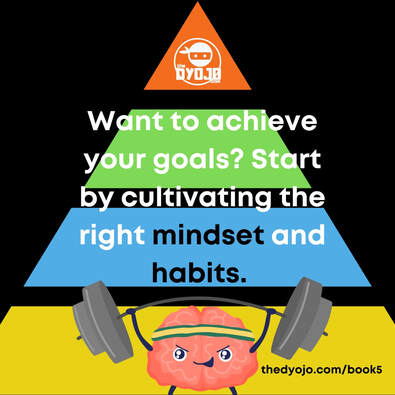
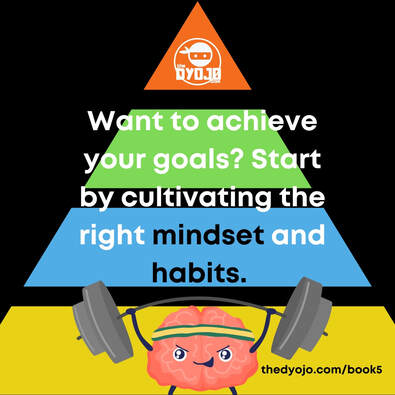
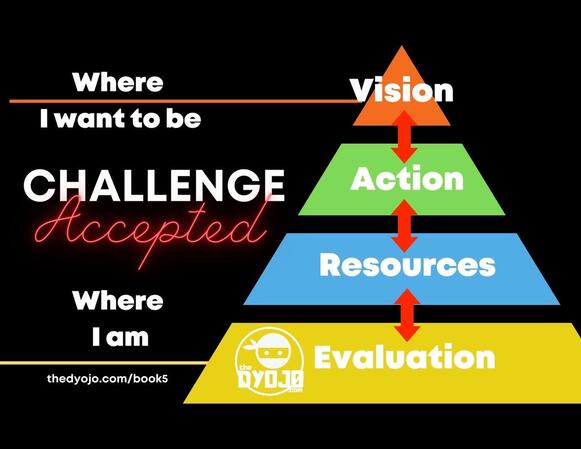



 RSS Feed
RSS Feed